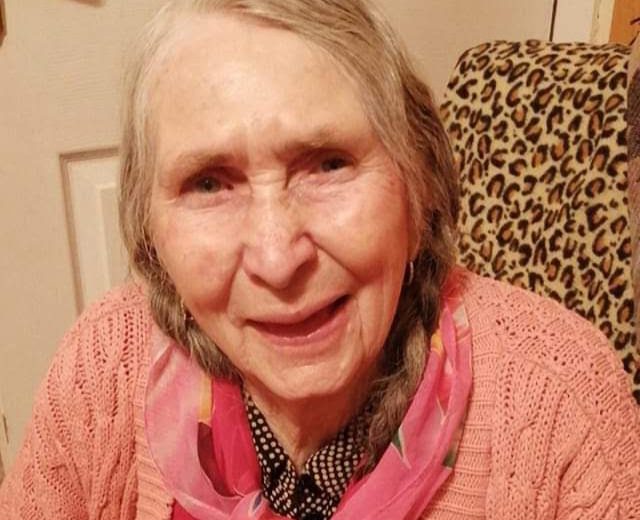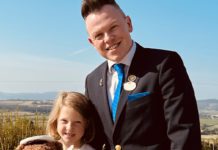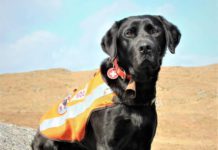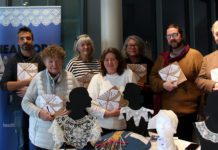Have you ever sat down with an Irish Traveller to ask them what their life was like?
Well, I recently sat down with my 91-year-old grandmother to do exactly that.
As an Irish Traveller woman myself, I wanted to learn more about what life was like for the older generation, and I couldn’t have picked a better person to listen to than my grandmother Kathleen Ward, from Kilconnell, Ballinasloe.
My grandmother was born in Tuam in February 1931, and she was the fourth oldest in a family of 14, which meant she had lots of responsibilities from a young age.
“My older sister was married, so I had to help my mother rear the younger children while my daddy was working,” she said.
Her father Laurence Ward, from Tuam, was a chimney sweep and a tinsmith, while her mother Mariah from Mountbellew looked after the children and did lots of sewing.
I asked her what her first memory was, and she told me that she remembers one day that her father had forgotten to collect her from school.
Because she didn’t know her way home, a man she knew put her on the back of his bike and brought her home. She was about 7 or 8 years old at the time, and in those days everybody knew and trusted each other.
But my grandmother could only go to school for a short time because her family had to keep moving.
“I loved to do playhouses with the girls I knew and my younger sisters. One of the girls I played with was a girl called Mary Ward, and we had a dinner set, and we played with that at the back of the tent I lived in for hours,” she said.
“And I would make flowers as a young girl, this was a great pastime for me. I also played bobbie houses with them – bobbie houses was a game where we made houses from boards and pieces of branches, they were hard but happier times.”
I asked her how she was treated back then as an Irish Traveller.
“Some would be good, and some would be bad, but you have to go out and meet people. By doing that, I have made many friends throughout the years that I am very grateful for.
“It’s because of that my family wouldn’t have to worry for money, as settled people would help out by giving us food.”
She met her husband, my grandad Michael, at a water pump getting water. She told me she ran away with him, because she felt she had no other choice because her parents were constantly making wedding matches for her every Tuesday.
(It was normal for the parents or older brothers of young Irish Traveller women to choose who their daughters married.)
“I had to run away or the wedding would have been pushed back for 12 months and when we did run away on the back of the bike, we ran into a big field and I lost my shoe. I got married a week after,” she said.
There were only six people in attendance at the wedding – her parents, her brother and sister-in-law and her father-in-law, and she had a Swiss roll as her wedding cake.
“Every time I eat a Swiss roll cake now it brings memories back from my wedding day, I had to borrow an overcoat to wear for my wedding,” she said.
“I didn’t have my first alcohol drink until I was nearly two and a half years married because it was the tradition that an Irish Traveller woman would not have an alcoholic drink until after their first child was born.”
They were happily married until my grandad suddenly died in 1985 from a heart attack. She always shares the lovely memories of him with her grandchildren that unfortunately never got to meet him.
I asked my grandmother how she managed to live on the side of the road and have children.
She said that it was very difficult, especially in the winter.
“I became a mother around 21 and had 13 children. To feed them, I had to beg for food, and while doing that, I had to bring the children with me.
“I cooked the food by putting the pots and pans on top of an iron triangle over a box with a fire. The type of food I cooked was bacon and cabbage and turnip and bacon, we wouldn’t get chicken often and when we did, there was very little of it.
“They were hard times, but I had to do what I did to get by. To describe the smell of it to you, the most memorable smell was of rabbit stew and the other smells were of bacon and cabbage and pigs heads – they were lovely smells.
“Your grandad used to skin the rabbits and the smell of that wasn’t very nice, other smells I can still remember are like the turf fire and I can still smell the freshness of the grass and the smell of silage on the side of the road.”
She lived in a caravan for ten years, and in 1978, she moved into her first house.
“I was grateful to finally have the house and a permanent roof over my head and my family, but I felt like it came too late for my older children because if we got the house earlier, they could have stayed in school longer and got a better education than they had.
“I did miss living on the side of the road because that’s all I knew from a young age but I was happy to finally have a house.
“I never got sick until I went into our house and I missed the fresh air on the side of the road because I found it healthier and because I wasn’t used to having a switch on the wall for heating to come quickly.
“I was used to having one temperature in the trailer or in the tent; the summer months were warm, but the winter was extremely cold and because of that I was happy to have the same temperature heat all-year-around.”
I asked her how much Cant she knew growing up.
“I knew a good amount of it when I was younger and I still know some words today,” she said.
In the Irish Traveller community the Cant language is still commonly spoken by the older generation, but in my experience, not many younger people know as much.
This is because many older people who could speak it fluently have passed away, and sadly sometimes the language has died with them.
But in some very traditional Irish Traveller families it was still taught to the children, and it is spoken fluently.
My grandmother recalled what it was like when she got her first dog. The dog’s name was Lass, and when my grandfather was gone off working, a few men came and were messing around and pulled the cover off the tent they were staying in.
She had four young children at the time and was living on the road, but the dog wouldn’t let the men in and saved my grandmother and my aunties and uncles because the men were afraid of the dog. She called them ‘blaggards’.
She would also tell the younger people to stay away from drugs and too much alcohol, be honest and trust their partners, let them trust you, and have no anger towards their wife or husband because you marry them for love – you don’t marry them to be angry or violent towards them.
I was delighted to speak with her and ask her questions about her life, but I couldn’t be more proud to be her granddaughter. She is an amazing woman who I am very privileged to know.











